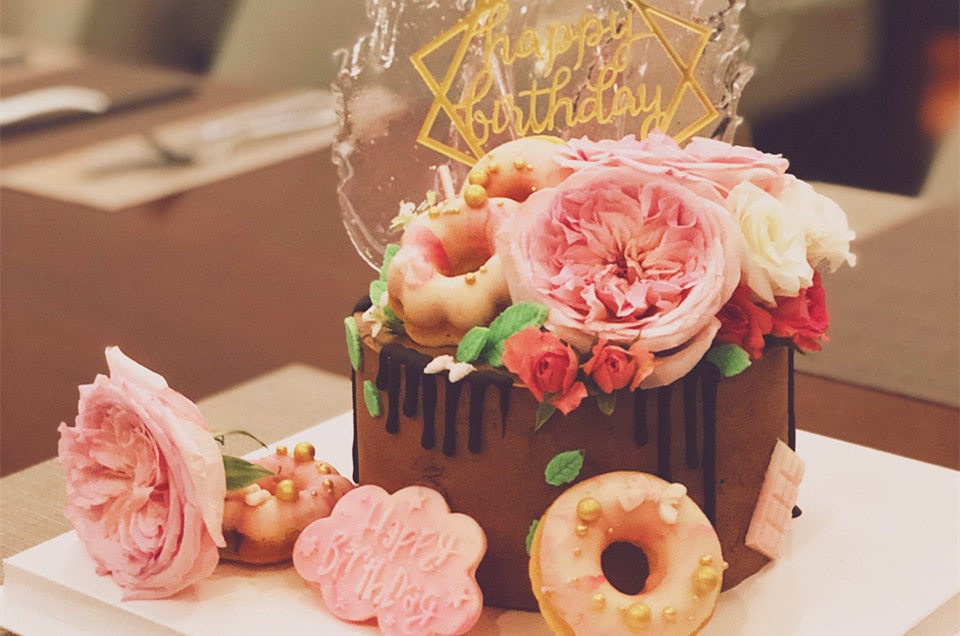Do you want to wish your Italian friend or relative a happy birthday but don’t know how to say happy birthday in Italian? There are several simple ways to say it. The good thing is that you do not have to be an Italian native to know how to say any of them. Continue reading to know how to say happy birthday in Italian.
How to Wish Someone Happy Birthday in Italian

Every culture in the world has a special way of celebrating birthdays. In Italy, like many other parts of the globe, birthday cakes, gifts, and wild parties characterize this occasion. However, some people choose to celebrate the day indoors with friends and relatives, and even prepare their cake.
So, it is not a secret that the Italian people love to celebrate special occasions, such as birthdays. Therefore, if you have Italian friends and relatives with upcoming birthdays, you should be able to wish them a happy birthday in their language just to make them feel special. Therefore, it is important to learn the special words to say to your friends on their special day.
Whether you are saying these words face to face or by sending a card or a text message, you have to say them correctly so that they can have meaning in them. The last thing you want to happen is to use the wrong words to wish your friend, relative, or lover a happy birthday. It might end up destroying your relationship, even if the words were not ill-intended.
Regardless of how the birthday is celebrated, Italians mainly use one of these two phrases: buon compleanno or Tanti auguri to express their best birthday wishes.
When loosely translated to English, Buon compleanno means “good birthday”. But Italians use the words the same way English speakers say “happy birthday”. Several other terms are commonly used to wish someone a happy birthday in Italian, although most of them are variations of the two main phrases.
For instance, you can say Tanti auguri di buon compleanno, which means “many wishes for your birthday” or Auguri which means “good wishes”. Some people also say Tanti cari auguri, amico mio which means “many dear wishes, my friend”. If the person you are wishing happy birthday is female, you say Tanti cari auguri, amica mia.
What Is the Meaning of Tanti Auguri?

Tanti auguri is the other common phrase used by the Italians to wish other people the best on their birthday. For this reason, the famous song “happy birthday to you” has been translated into Italian as “Tanti auguri a te”. However, it is important to note that the phrase “Tanti auguri” doesn’t mean happy birthday. Indeed, the Italian word for birthday “compleanno” is not used in the phrase.
The correct English meaning of the word “tanti” is “many”, while “auguri” means “well wishes”. So, when you use the entire phrase “tanti auguri”, you are telling someone “many good wishes”. But you can just shorten the phrase and simply say auguri to let someone know you are wishing them the best on their birthday.
But unlike buon compleanno, which is mainly used on birthdays, tanti auguri can be used on many occasions. This is because tanti auguri is just a generic phrase that applies to a variety of occasions, including Christmas, New Year, Easter, Mother’s Day, Father’s Day, and many more. You can either say tanti auguri, include other phrases including;
• Tanti auguri di buon Natale – “Merry Christmas”
• Tanti auguri di buon anno nuovo – “Happy New Year”
• Tanti auguri per la festa della mamma – “Happy Mother’s Day”
• Tanti Auguri di buona Pasqua – “Happy Easter”
The universal procedure of formulating these phrases is “best wishes + for + the name of the holiday”. Nevertheless, the phrase tanti auguri can also be used to wish someone great success in life. For instance, you can say it to a friend or relative when they are getting married, starting a new job, or celebrating their anniversary.
If you wish to sing the birthday song to your friend or relative on their birthday in Italian, this is how it goes.
Tanti auguri a te,
Tanti auguri a te,
Tanti auguri a <insert the person’s name>
Tanti auguri a te!
“A te” means “to you”. There are many online audio tracks that you can use to practice this song.
Other Ways to Wish Someone Happy Birthday in Italian

There are many other ways of saying happy birthday in Italian, but they are not very common. For instance, if you want to sound original, you can use the phrase “cento di questi giorni”, which means “one hundred of these days”. This sentence is normally used to let someone know that you are wishing them a long life or 100 years of birthdays.
You can also say “felice compleanno”, which means happy birthday. Indeed, felice means “happy” while compleanno means “birthday”. However, this phrase was commonly used in the early day. So, it’s no longer in use.
How to Ask Someone About Their Age in Italian

When you are invited to an Italian birthday party and you would like to know the age of the birthday boy or girl, there are several humble ways to ask someone about their age in Italian. For instance, you can say “quanti anni compi”, which means “how old are you today”. But if you want to ask someone about their age when it is not their birthday, you say “quanti anni hai”, which translates to “how old are you?”.
In English, quanti means “how many”, while anni means “years”. “Hai”, on the other hand, is a second person singular of the verb have. Therefore, this sentence would be translated to “how many years do you have?”
To answer these questions in Italian, you can say “compio 25 anni, which translates to “I’m turning 25”, or “ho 25 anni”, which means “I’m 25 years old”. You also need to note that when you want to say how old you are in Italian, you have to use the verb avere, which means to have, instead of the verb to be, like in English.
Questions and Answers About Italian Birthday Celebrations

If you don’t know your Italian friend’s birthday, you can ask them politely in their language. For instance, you can ask them: Quando e il tuo compleanno? (when is your birthday?). You can also ask them: Quando compi gli anni? which also translates to “when is your birthday”. The word quando means “when”, anni means “years”, and compiere is the verb “to turn” or to reach a particular age.
You can also ask about someone’s birthday indirectly by saying “di che anno sei?”, which means “in which year were you born. To answer this question in Italian you say “sono del settantadue”, which translates to “I was born in 1972”.
Most Italians, especially women, consider asking someone’s age as impolite. Therefore, it is very difficult for an Italian woman to reveal her age, especially to someone she is not very close to. So, when asking mature Italian women about their age, it is wise to use indirect words such as their birth dates, rather than asking them the exact year they were born.
That way, if the person is uncomfortable revealing their age, they can just tell you the exact date they were born without revealing the year. When you are replying to someone who wants to know your birthday, you just put the date first followed by the month.
Because people’s ages are such a sensitive topic, you are supposed to compliment someone after they reveal their age to you by saying “complimenti, non li dimostra!”, which means “congratulations, you don’t show them!”.
Although this compliment might sound weird for English speakers, it means a lot to people who are reluctant to reveal their age. It is another simple way of telling someone that they look younger than their actual age.
If you want to ask your Italian friend which birthday present you should give them on their birthday, you can say: Che regalo vuoi? This means “what present do you want?”. Or you can say: Cosa vuoi per il tuo compleanno? This translates to “what do you want for your birthday?”.
In Summary
If you didn’t know how to say happy birthday in Italian, this article should guide you to learn the most important Italian phrases that are related to birthdays. It also teaches you how to sing the happy birthday song in Italian as well as how to ask important questions about someone’s birthday.










